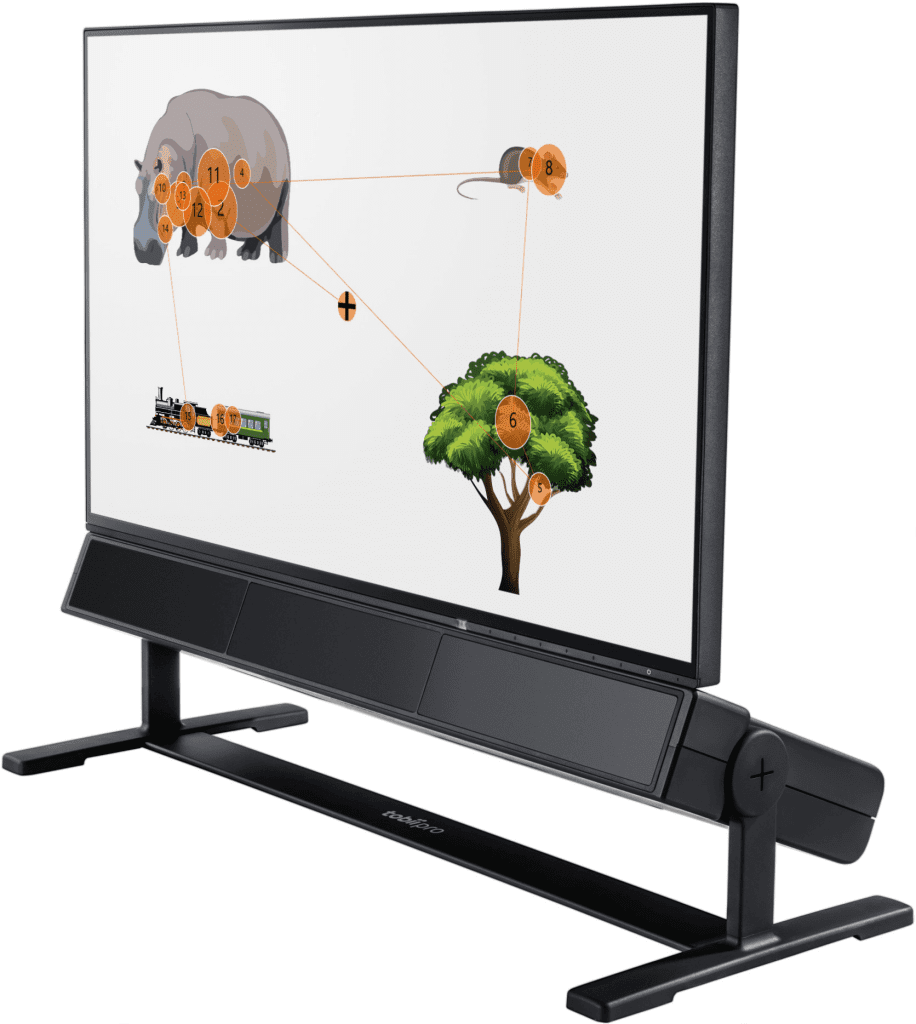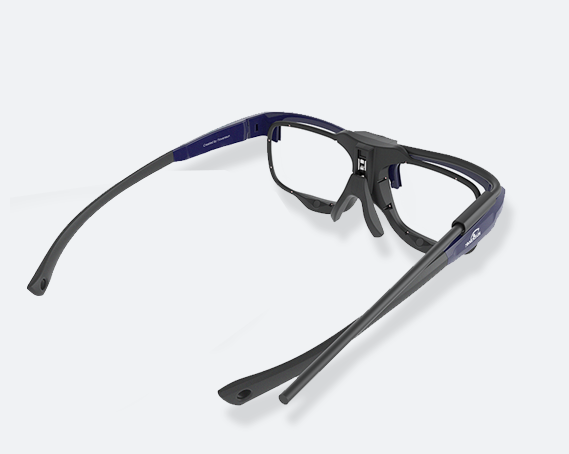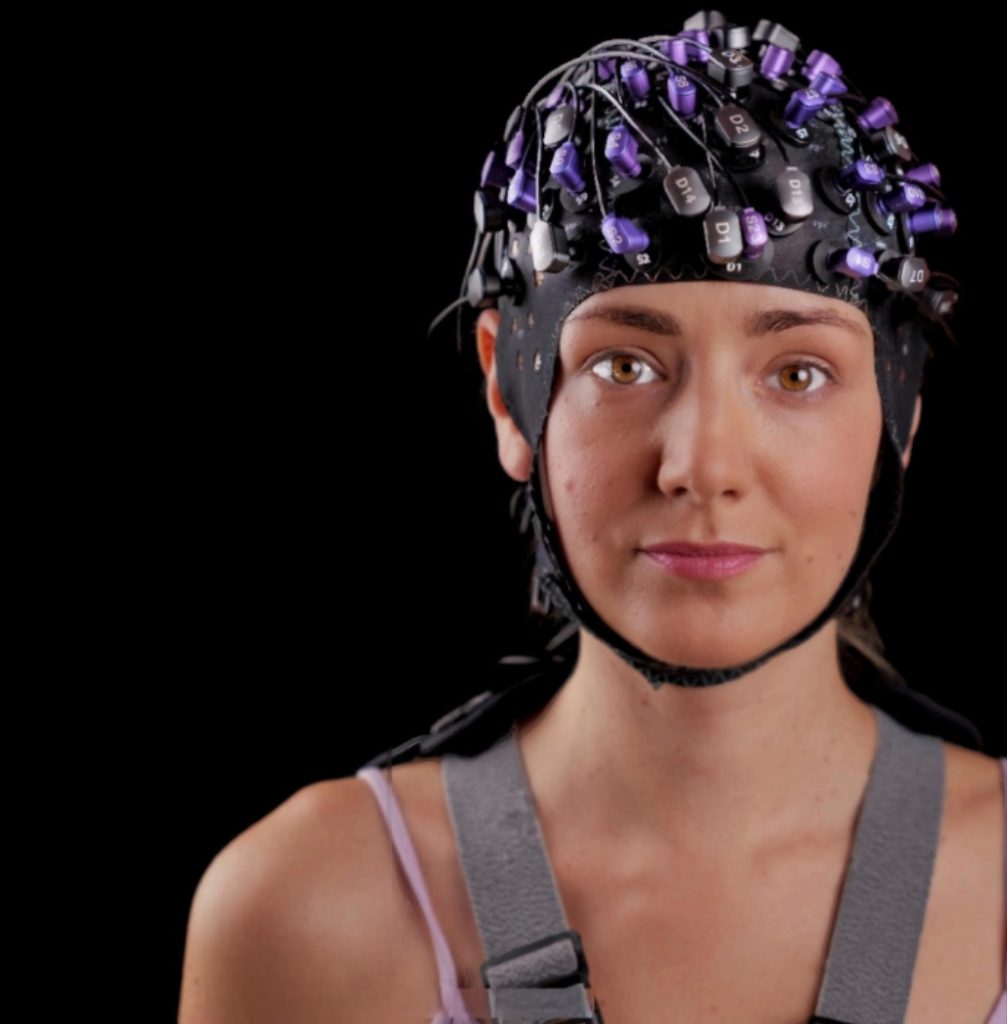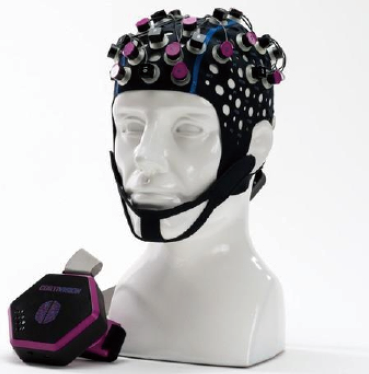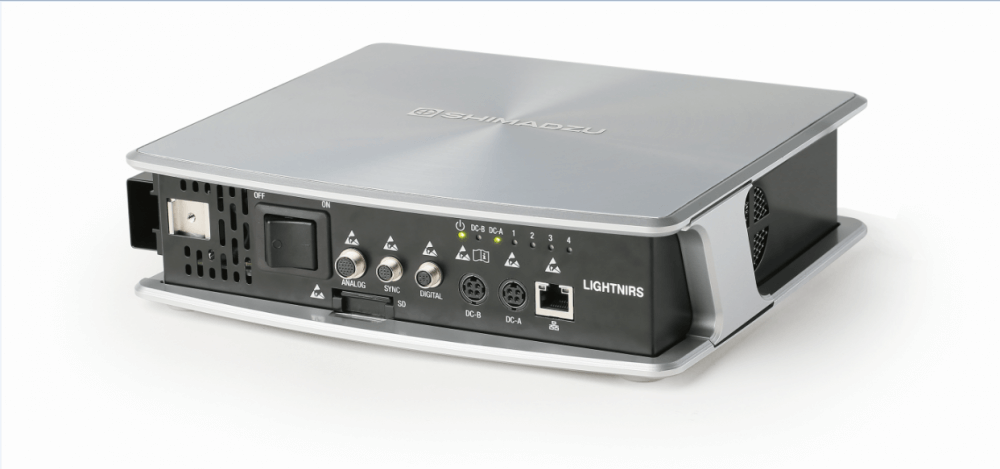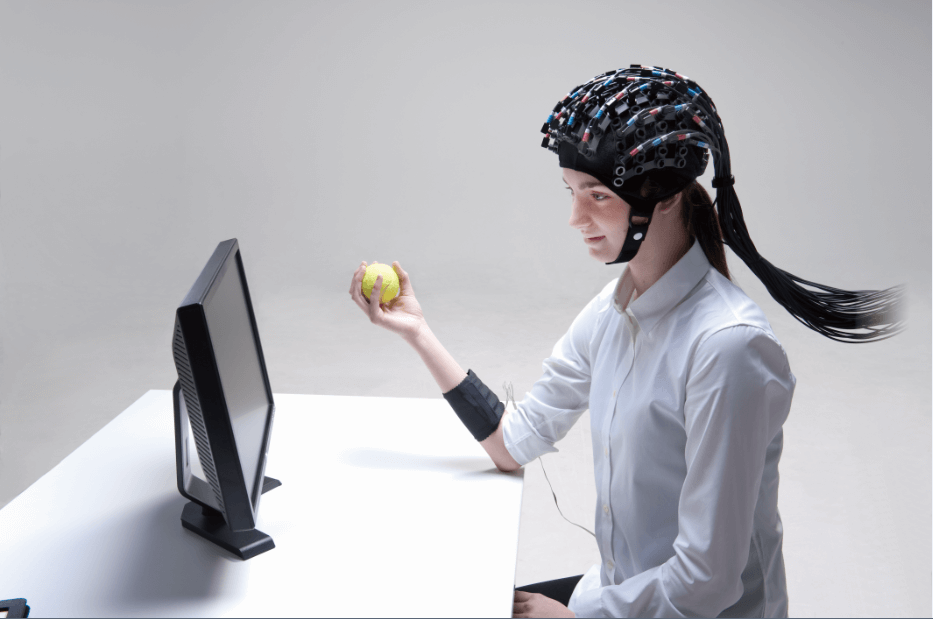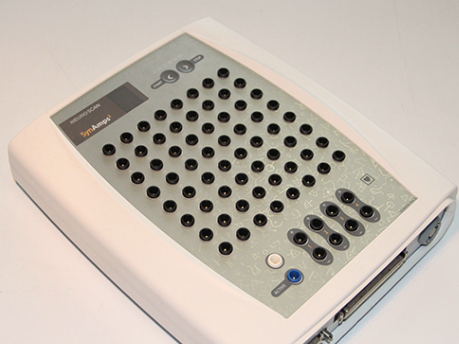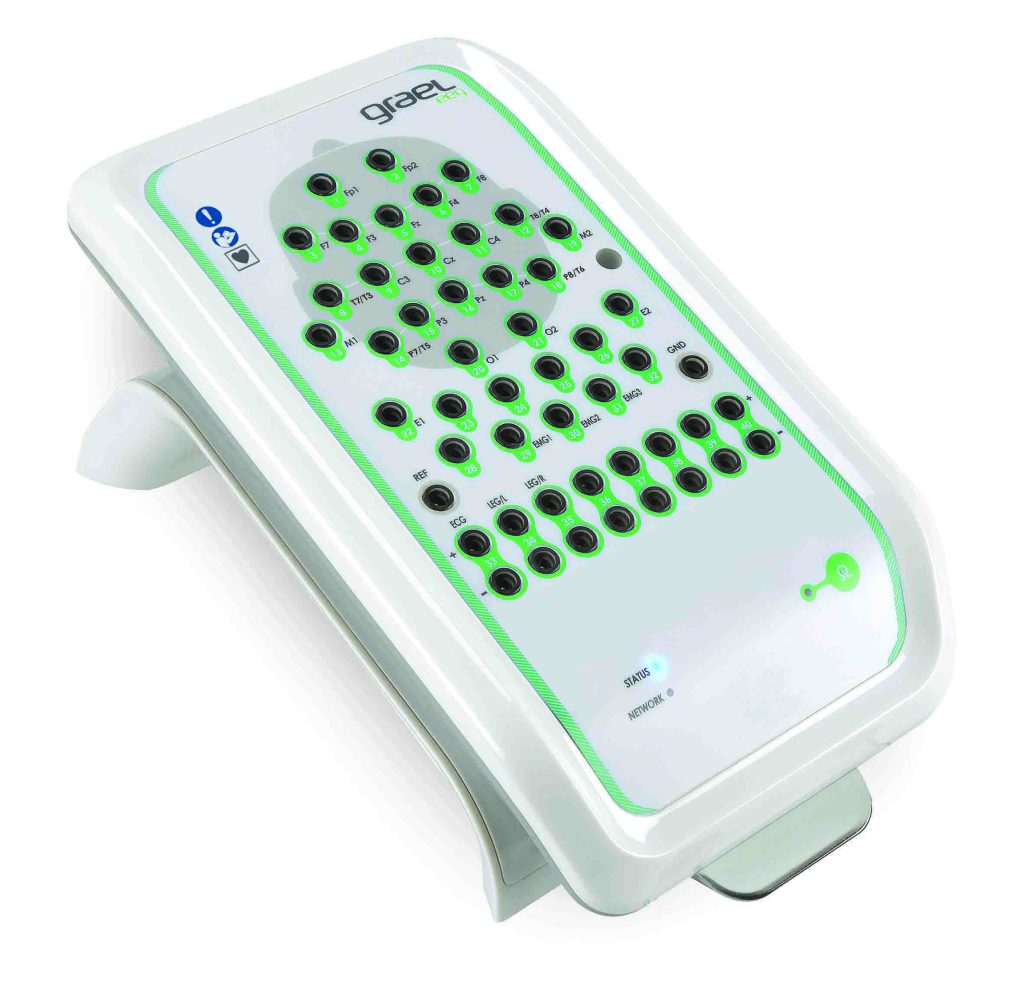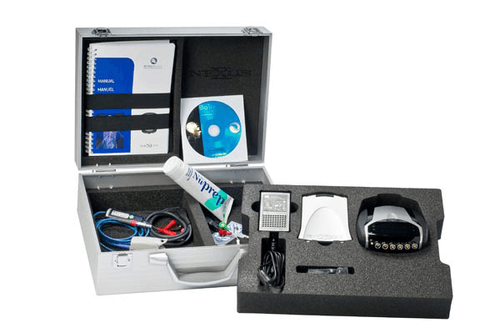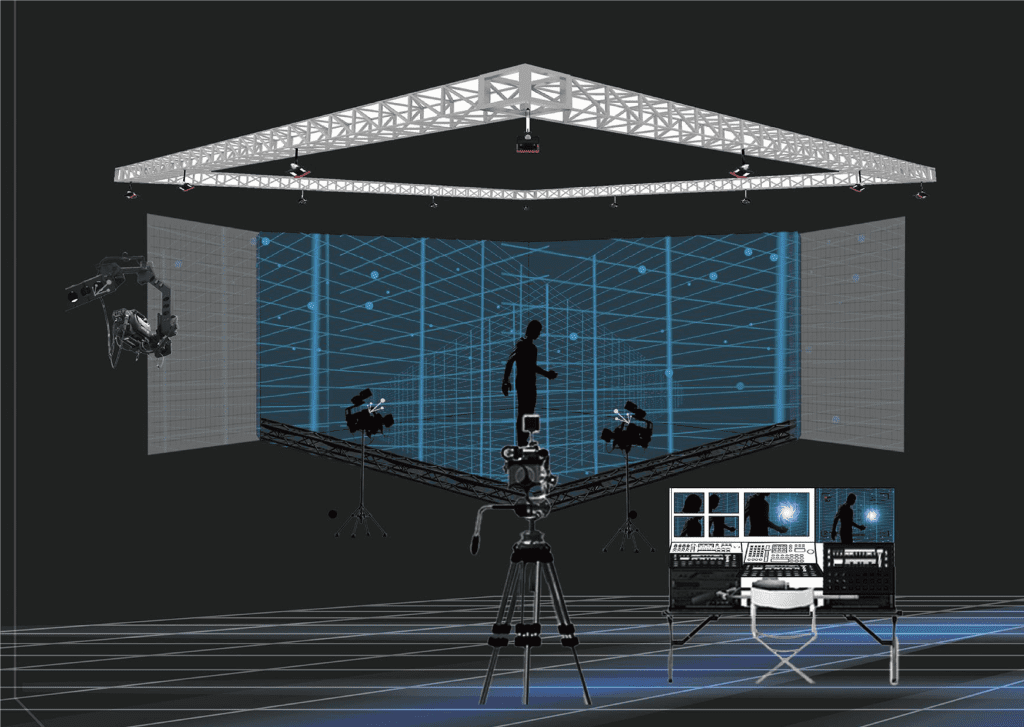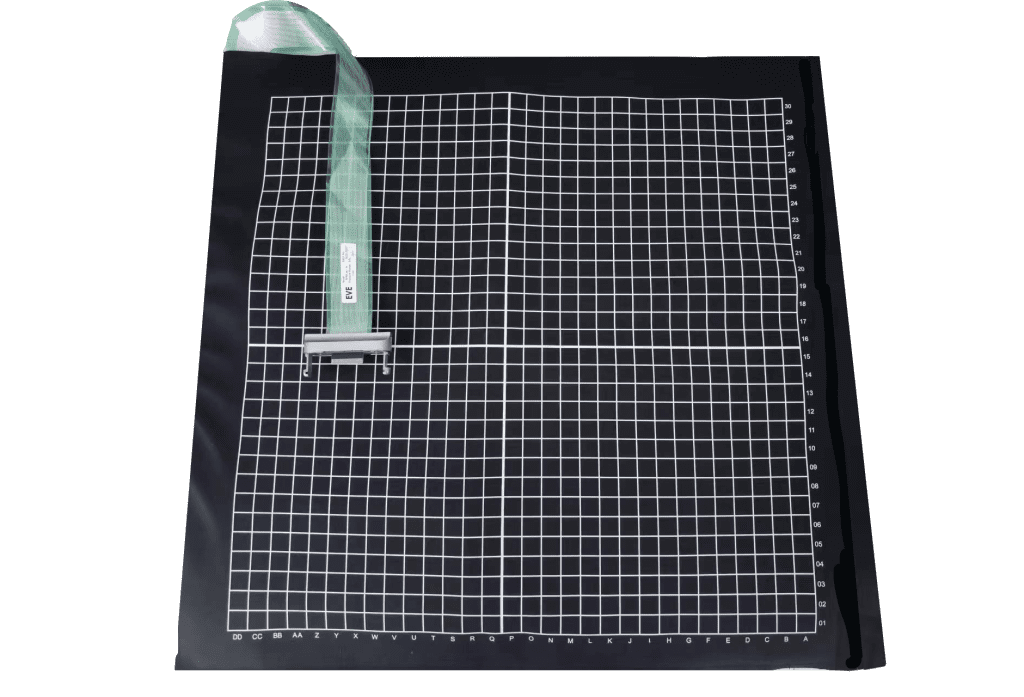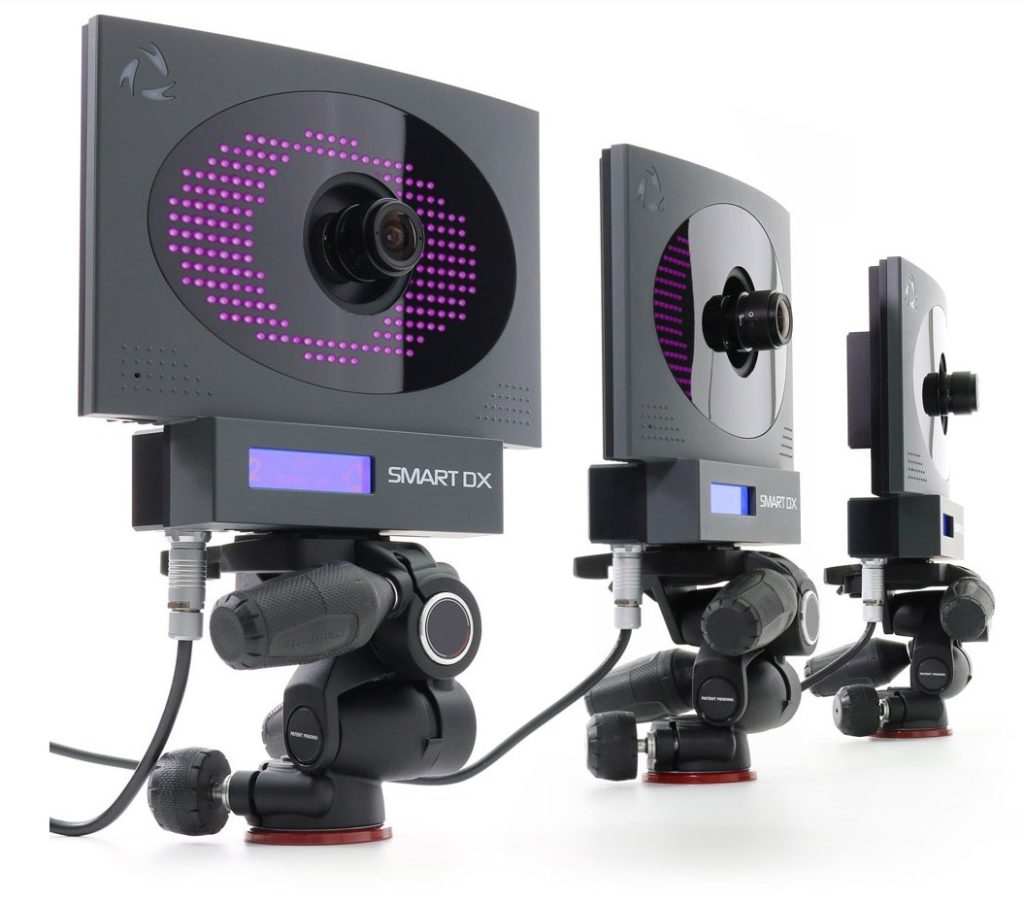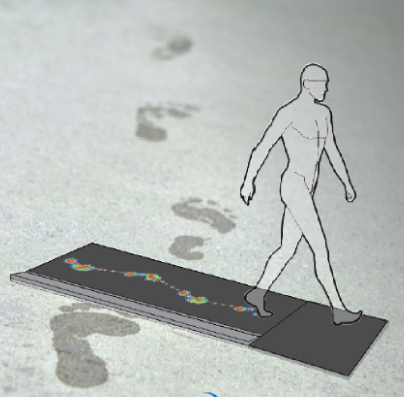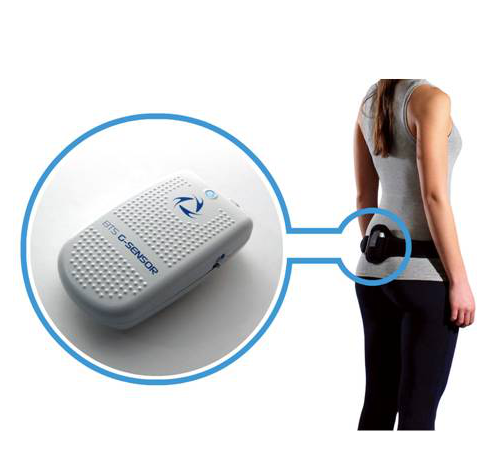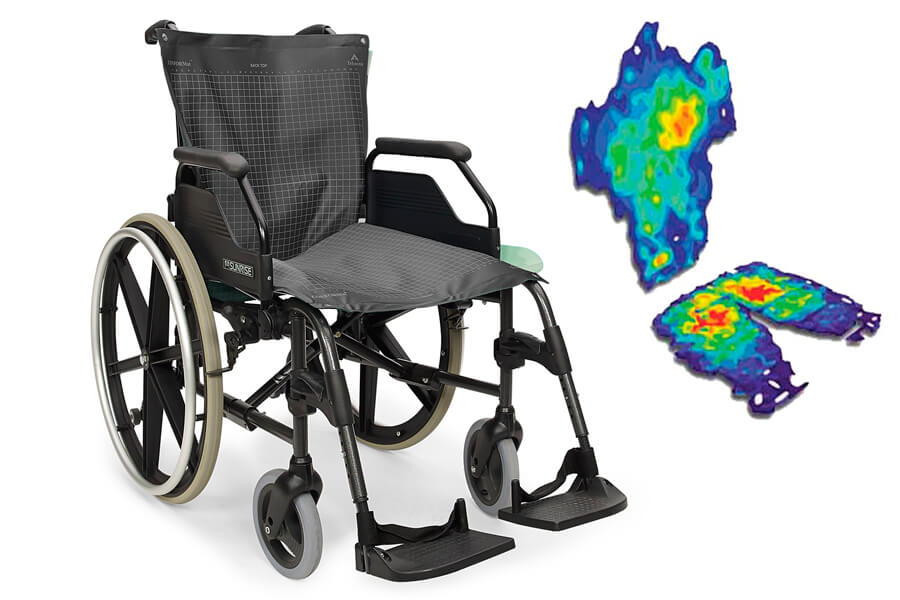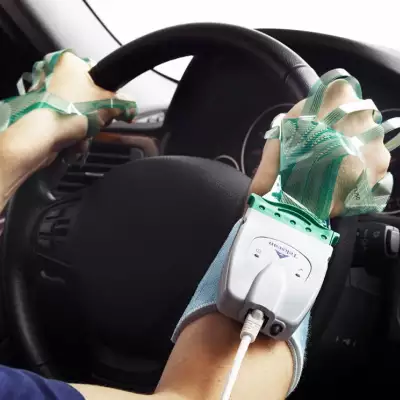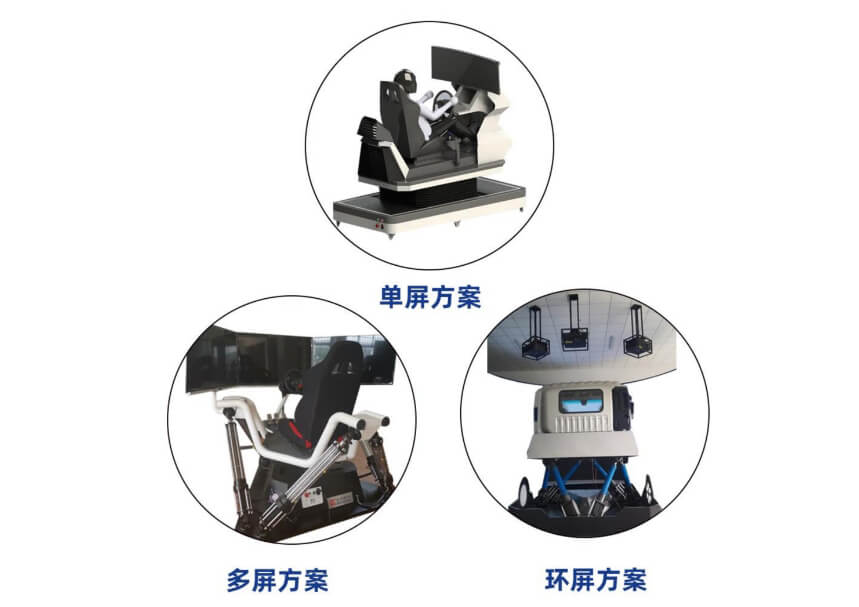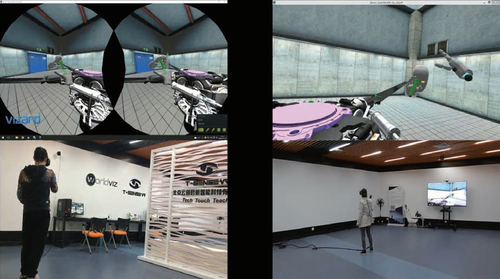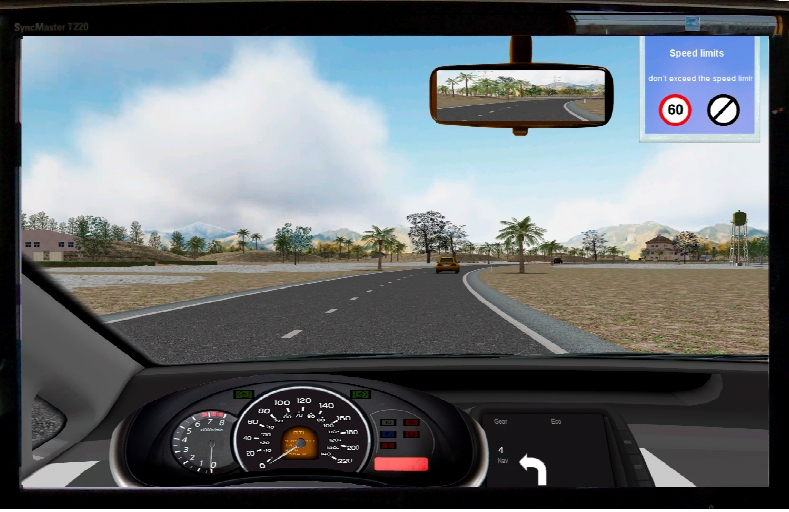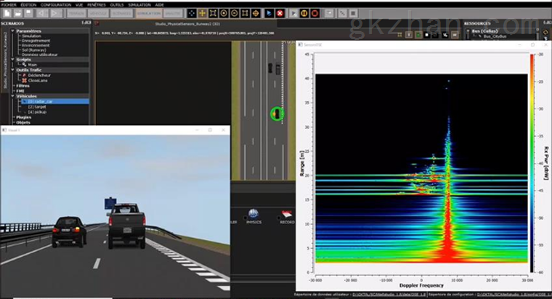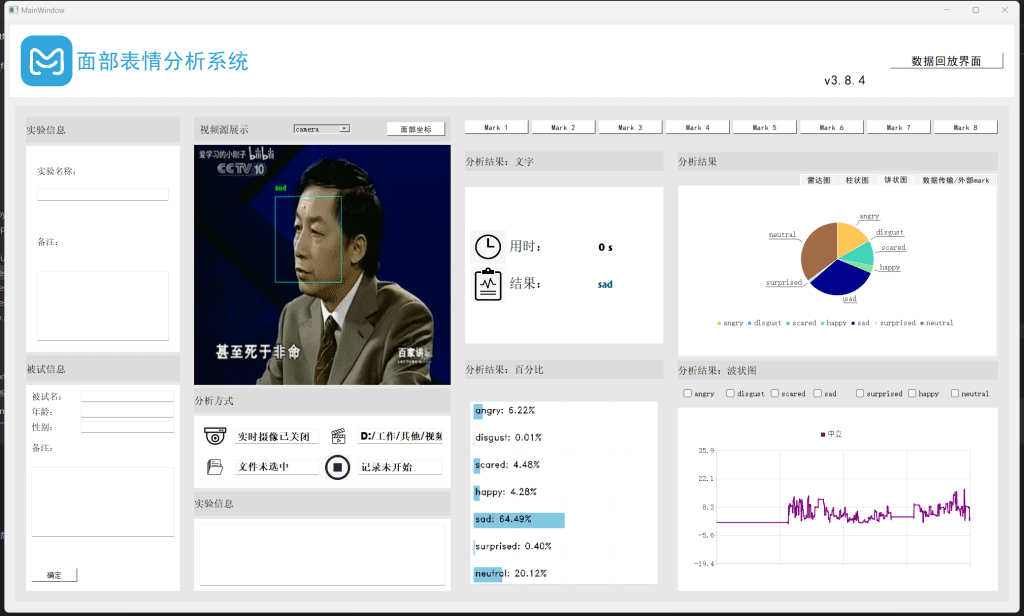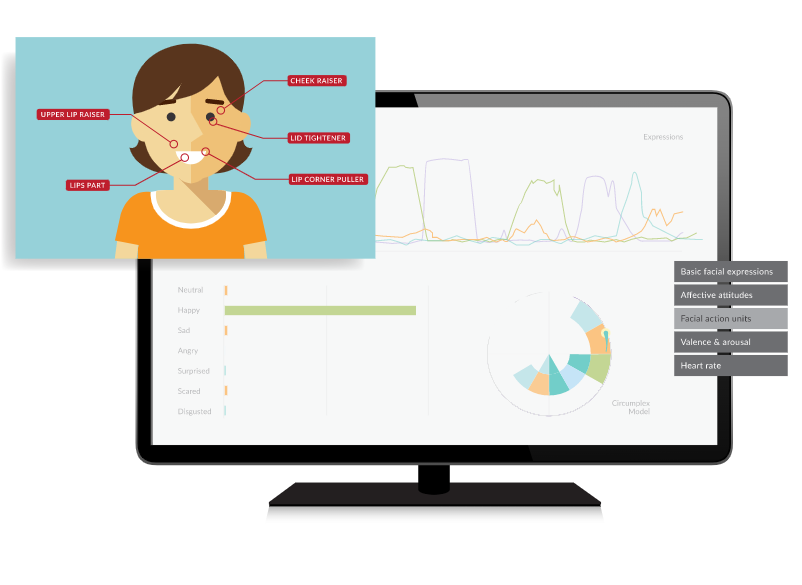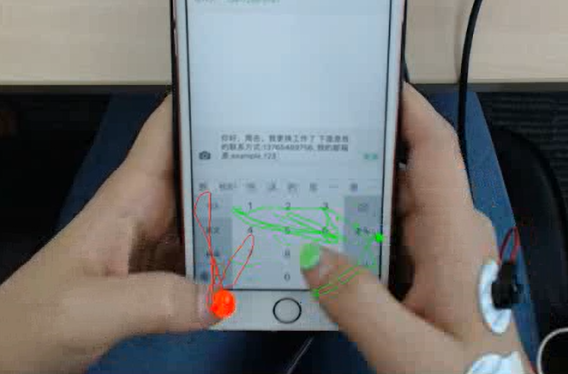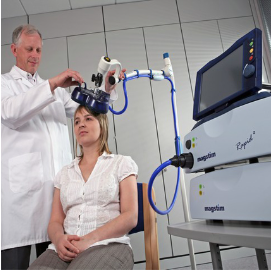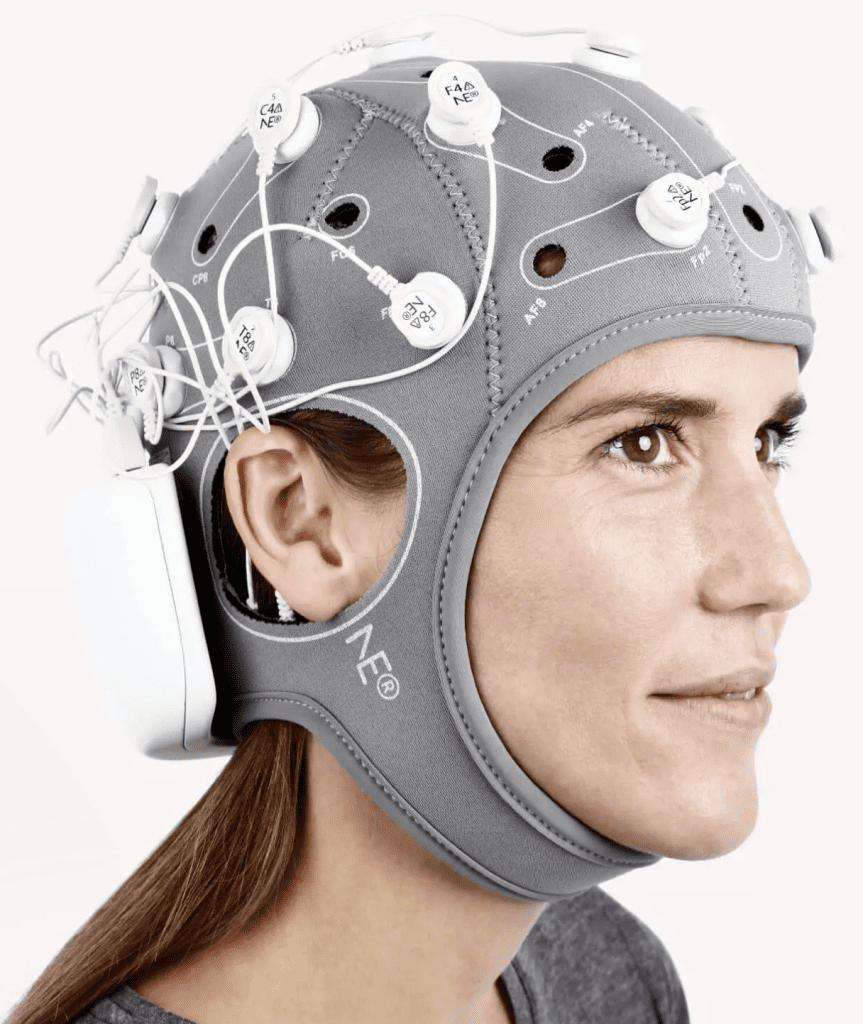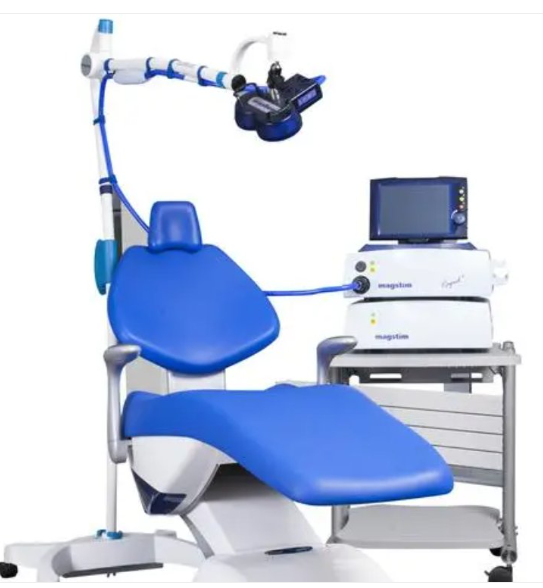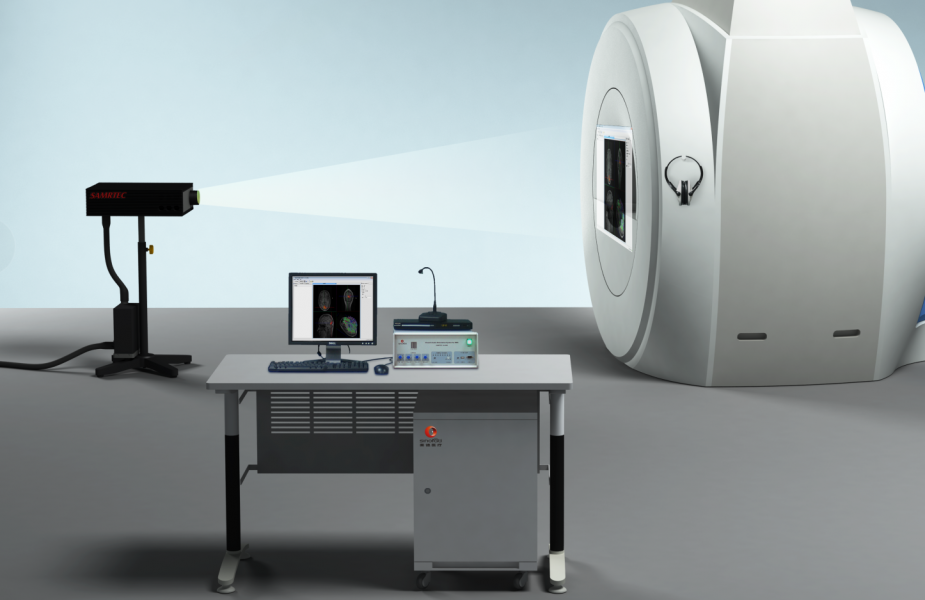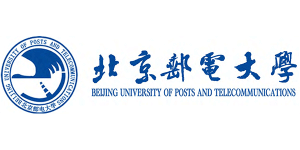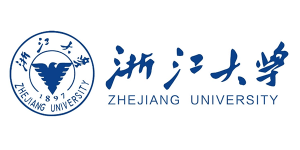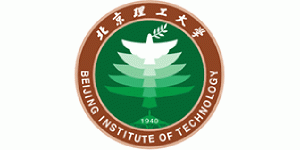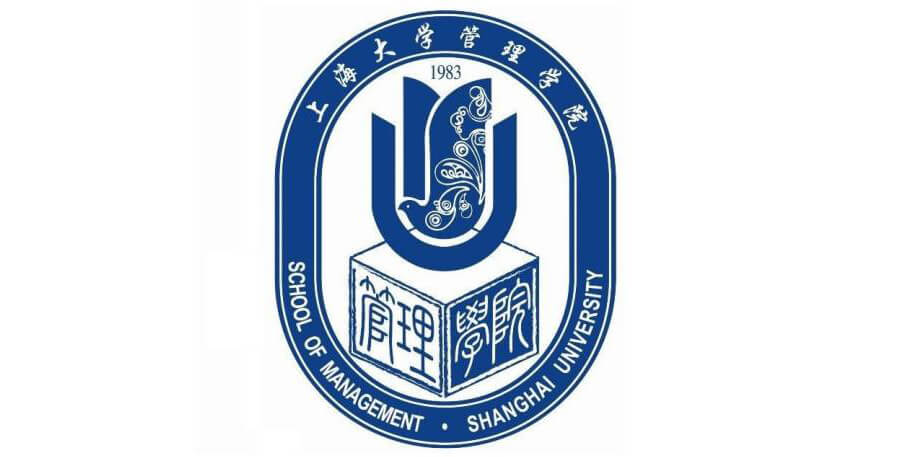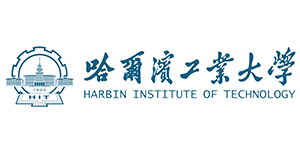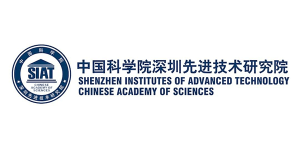

In recent years, Python and PsychoPy and MNE-Python tool libraries developed based on Python have been developing rapidly in the fields of teaching, research and application of psychology, with the prominent advantages of open source, free, high accuracy, flexibility and wide application, which combined with important tool libraries such as NumPy, Pillow, SciPy, Matplotlib and Pandas and other important tool libraries, it can show very powerful functions and advantages, and form a perfect ecology, which not only applies to all common psychological experimental techniques and methods, such as EEG, brain magnetism, physiometer, eye movement, virtual reality, functional MRI, functional near-infrared optical imaging, etc., but also completely covers the experimental design, editing and presenting of psychological stimulus materials, data acquisition and processing, statistical testing and inference, visualization of results, and other important aspects. Therefore, mastering the use of Python and related tool libraries is crucial for improving the learning and working efficiency of psychology, and currently theIt has become a necessary skill for further studies and job competitions..
In order to enhance the use of Python, PsychoPy and MNE-Python by domestic psychology practitioners, theInstitute of Psychology, Chinese Academy of ScienceshostedPython_PsychoPy_MNE-Python Psychology TrainingIt will be held from July 22 to July 26, 2024 in Beijing. This training unites senior scientists and professional technicians, , ,The lecture explains the cutting-edge applications of Python and big data analysis in psychology, and at the same time, takes the most commonly used eye movement and EEG technologies in the laboratory as the perspective, systematically introduces how to use Python, PsychoPy and MNE-Python to carry out the important work of experimental program design, data collection and analysis, as well as the results of the visualization, and the content of the setup is balanced with the academic presentations of cutting-edge research and the theoretical and practical techniques. PracticesThe aim is to help participants gain a deeper understanding and appreciation of the practical use of these tools to effectively enhance learning and work efficiency.
■ Training Highlights
1.Zero-based learning Python, from introductory to proficiency, experience the charm of Python through practical operation;
2.To realize the combination of theory and technology with the theme of hot and cutting-edge applications of Python in psychology;
3. Full-process, systematic study of psychological research methods and techniques, with complete coverage of the important aspects of psychological experimental design, editing and presentation of stimulus materials, data analysis and processing, and visualization of results;
4. recognize, understand, and master the practical applications of PsychoPy and MNE-Python in the field of psychological research in conjunction with commonly used eye movement and EEG research techniques.
■ Course Content(Please bring your laptop for hands-on practice)
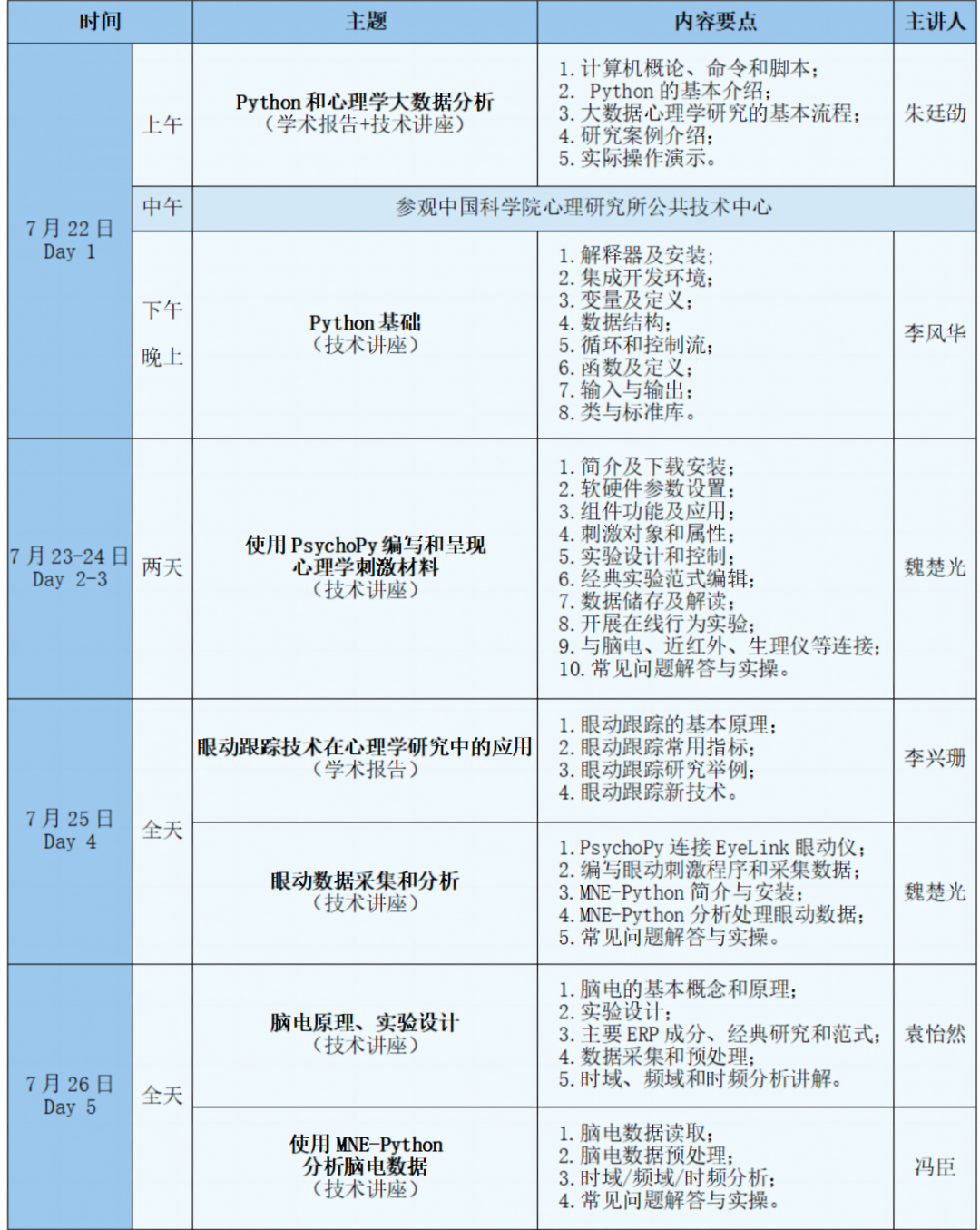

Note: The actual course may be fine-tuned according to the learning progress.
■ Faculty(in order of the schedule of lectures)
Dr. Zhu Ting ShaoHe is a second-class researcher and doctoral supervisor at the Institute of Psychology, Chinese Academy of Sciences (CAS), and a selected candidate of the "Hundred Talents Program" of CAS. His research work focuses on machine learning using Python, Chinese text-to-speech conversion, and psychological research on Internet behavior, and has achieved innovative results. For the first time, he proposed to use data mining to learn Chinese rhyming rules, and applied it to the learning of rhyming rules of Chinese two-character words and sentences, and achieved better learning results. The proposed method of using machine learning to train users' browsing behavior model, and the related paper won the best student paper in the Ninth International Conference on User Modeling. Conducted psychological research on online behavior, from the analysis of online behavior to achieve the perception of the user's personality, mental health, and social attitudes, and based on this to achieve the early warning prediction and effective intervention of group psychology. So far, Dr. Zhu Tingshao has published more than 50 academic papers in authoritative domestic and international journals and well-known international conferences.
Dr. Li FenghuaMr. Wang is a Senior Engineer at the Institute of Psychology of the Chinese Academy of Sciences (CAS), a Master's supervisor, and one of the first "special-appointed backbones" of the Chinese Academy of Sciences. He has participated in the National Science and Technology Support Program of the 12th Five-Year Plan, "Epidemiological Study of Childhood and Adolescent Mental Disorders in China", and the National Key Research and Development Program of the 13th Five-Year Plan, "The Influence of Psychological Adjustment on Elderly Health and Intervention Role", and has published more than 20 papers on SCI/SSCI and 5 patents. He has published more than 20 SCI/SSCI papers and applied for 5 relevant invention patents. Using Python language, he has developed: 1) a series of technologies to realize real-time emotion perception and measurement by using smart bracelets (watches), and the results have been applied to Huawei, Honor, and Little Genius smart bracelets and watches, etc.; 2) an emergency psychological assistance and community service system based on wearable devices, and the system, through the cooperation with Tencent's SSV department, has built the intelligent elderly community application "silver hair" and "emotional health", and created the "silver hair" and "emotional health". Emotional health", creating a new model of "psychological adjustment in old age + prevention and control of chronic diseases"; 3) "Emotional Recognition Perception Model Transplantation and Algorithm Toolkit" in the national-level major research project.
■ Training location
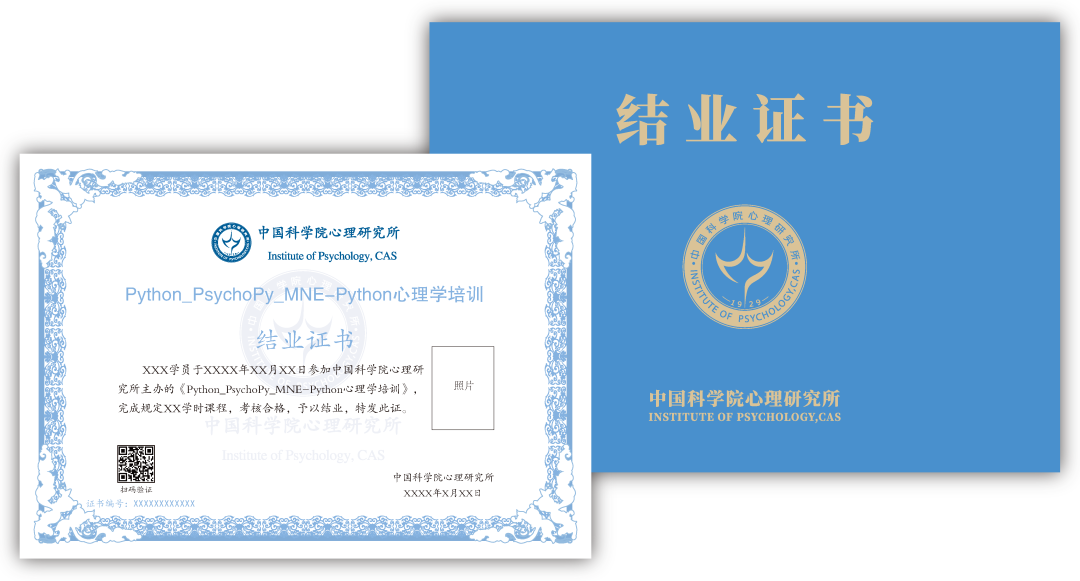

■ Enrollment method
The cost of this training is $3,600 per person and can be obtained through the"QR code" payments or unit transfer paymentsWhen transferring funds, pleaseAdd note "Name + Python Training"Information. The training willSeating order is based on the order of registration.
-
Scan the QR code for payment:




4.Invoicing and requesting links to certificates:https://www.wjx.cn/vm/wK31qbp.aspx
(Or scan the QR code below)



Company Profile
Beijing Everloyal technology co., LTDIt is invested by Zhongke (Guangdong) Science Group, relying on Guangdong Human Factors Technology Research Institute and Wuhan Human Factors Engineering Technology Research Institute, and is a new type of high-tech enterprise based on the direction of psychological human factors, driving human factors, biomechanics, user experience, virtual reality and other directions, integrating production, research and development, sales and technical services, and has been selected as a national high-tech enterprise, a science and technology-based small and medium-sized enterprise, and a high-tech enterprise on the list of Zhongguancun. High-tech enterprise list.
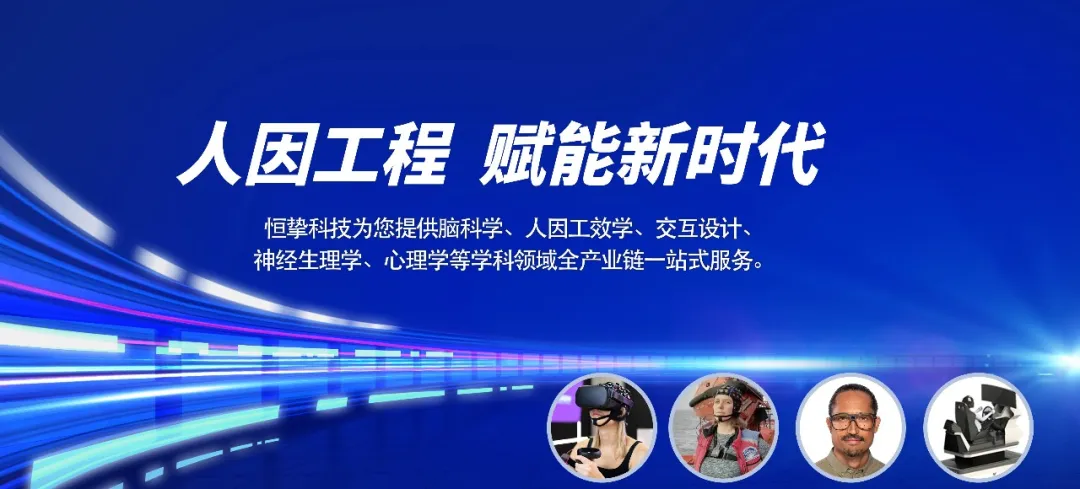


Hengzhi Technology independently researches and develops driving human factors system, virtual reality graphical editing software, light environment psychological assessment system, psychological and human factors experimental teaching system, and at the same time as the general agent of Poland Cortivision near infrared, Russia Mitsar electroencephalography and Germany Eyelogic eye-tracking instrument in China, and the general agent of biomechanics and gait analysis scientific research products such as surface electromyography of Italy BTS, and so on. AdHawk Mindlink (Canada), QuaeroSys (Germany), Noldus (Holland), Tobii (Sweden), MindMedia (Holland), Biopac (U.S.A.), ETT (U.S.A.), and other products in the field of olfactory/gustatory stimulation. We have served Tsinghua University, Peking University, Beijing Normal University, Northeast Normal University, Yanshan University, Xi'an University of Architecture and Technology, Northwest Agriculture and Forestry University, Shenzhen University of Technology, Xi'an University of Science and Technology, Shanghai Jiaotong University, Xinjiang Normal University, Qiyuan Laboratory, China Electronics Technology Group 27, China Electronics Technology Group 28, Huawei Technology, InkScan, NetEase, Aerospace Academy II, and so on. Thousands of colleges and universities, research institutes and enterprises and institutions continue to carry out in-depth cooperation in talent cultivation, production and research cooperation, and transformation of achievements.












